India is full of varieties with different cultures in different states of India. Every state has its language, traditional clothes, and foods in India. I have collected all the colorful information about traditional costumes from all 29 states here. This is gonna be fun! Let’s dive in!
Traditional Dresses of India
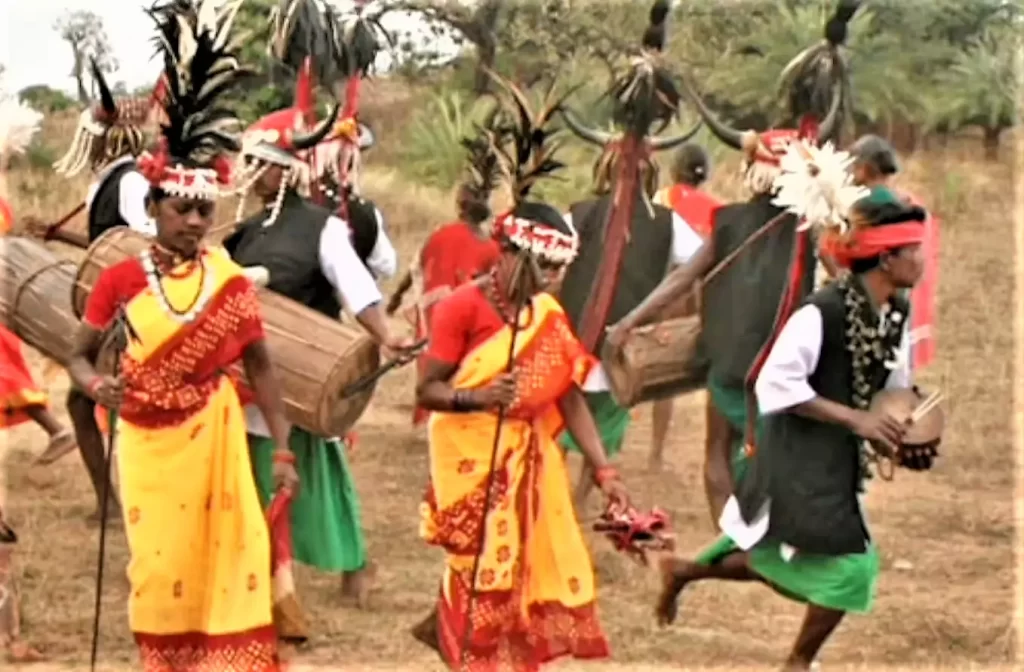
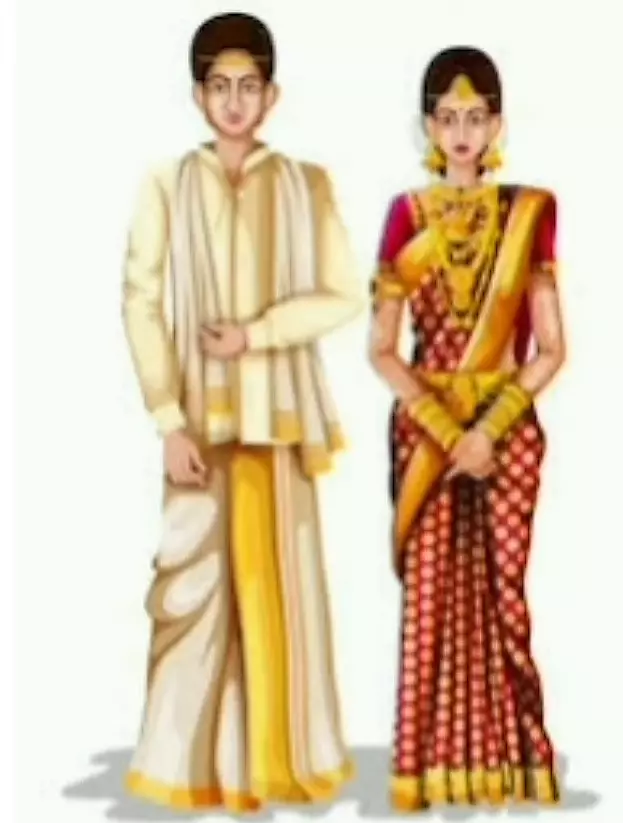
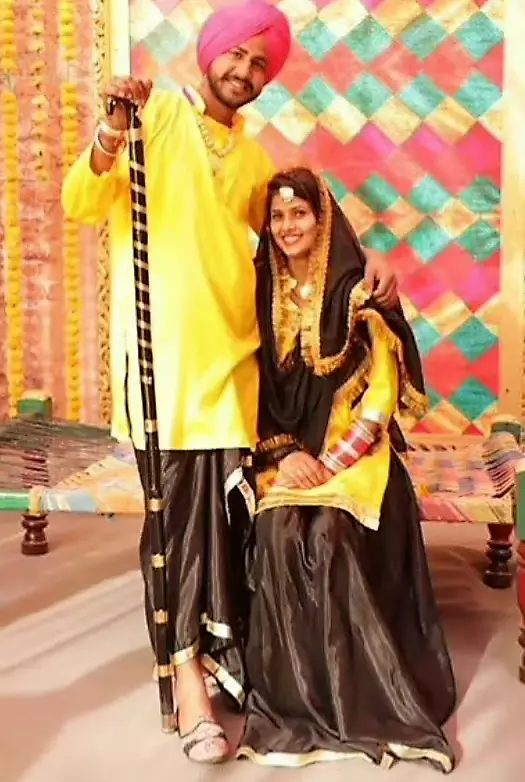
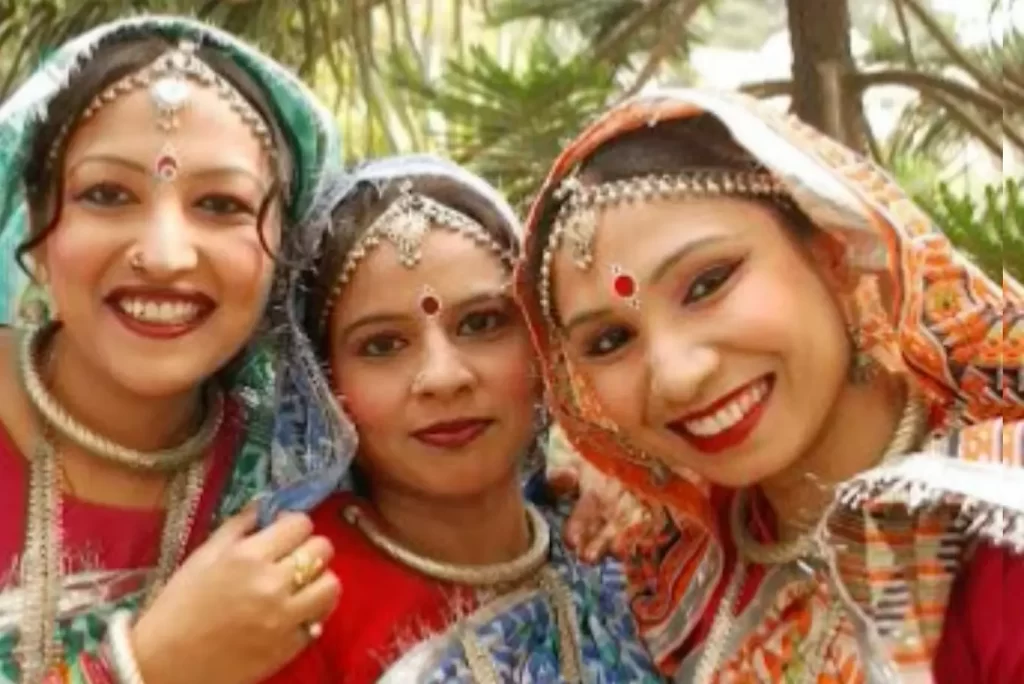
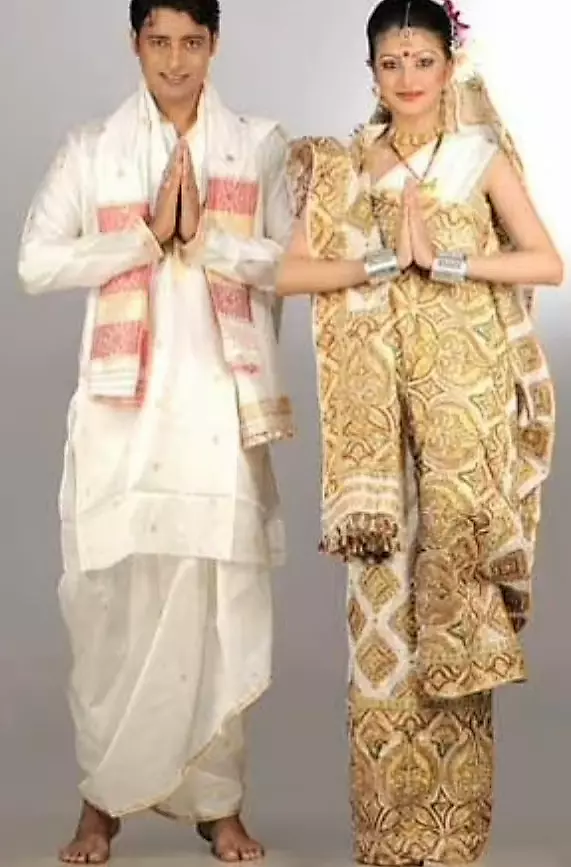

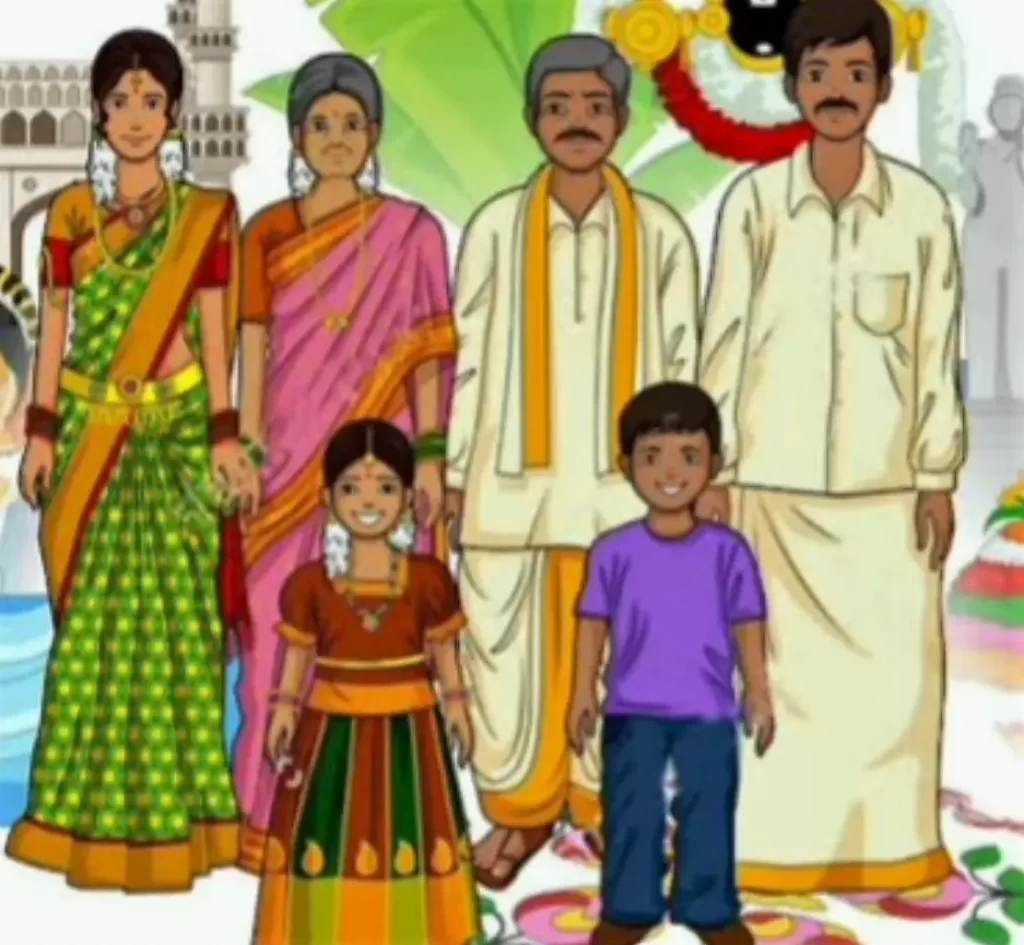
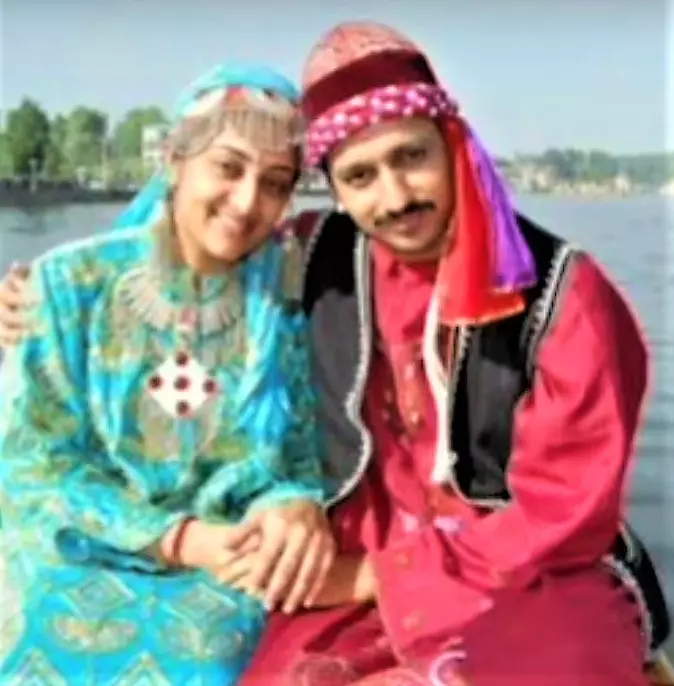
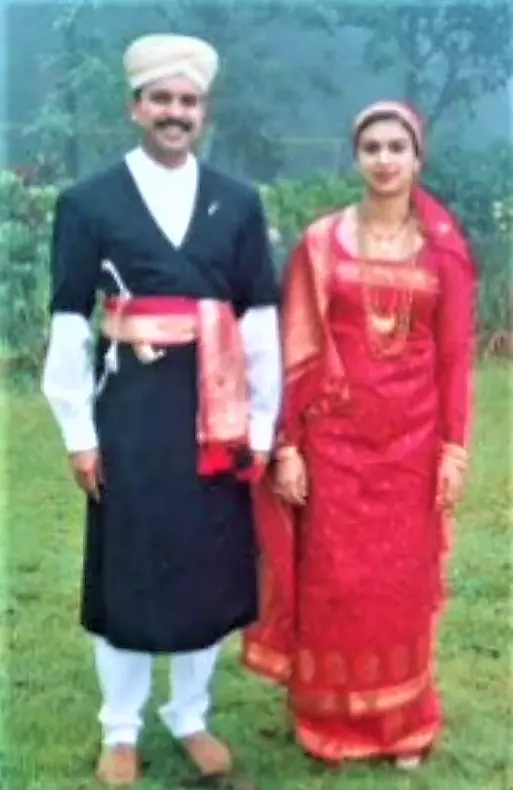
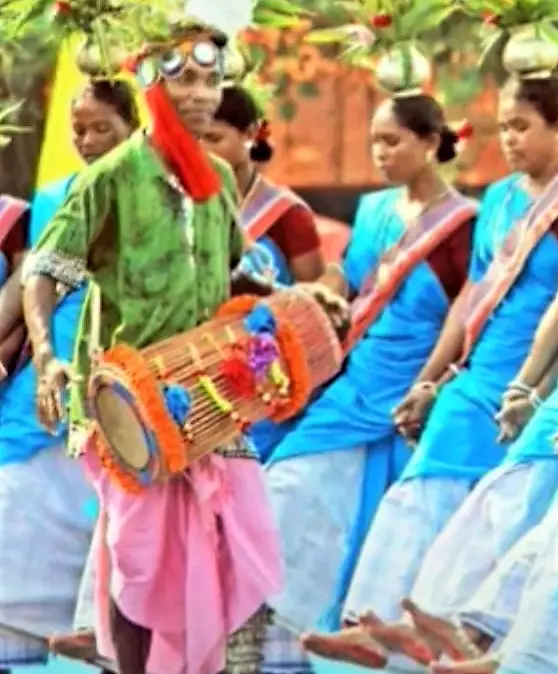
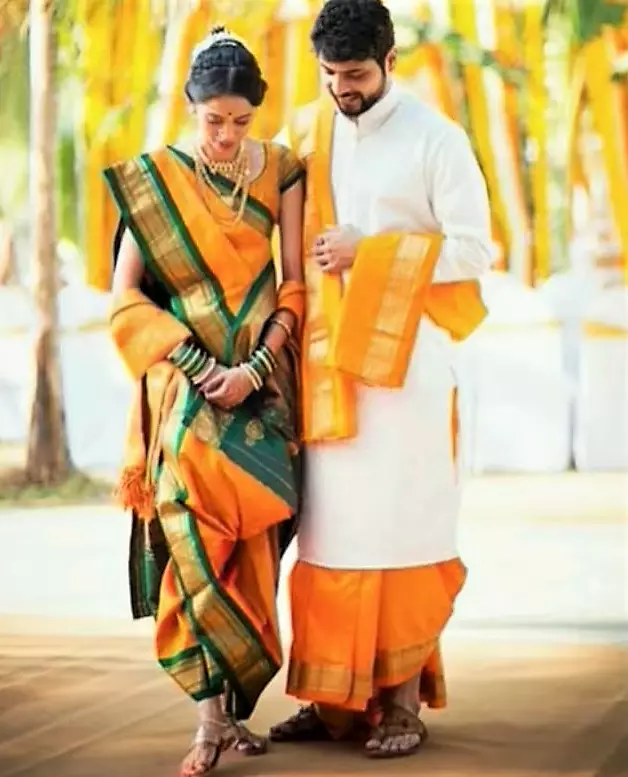
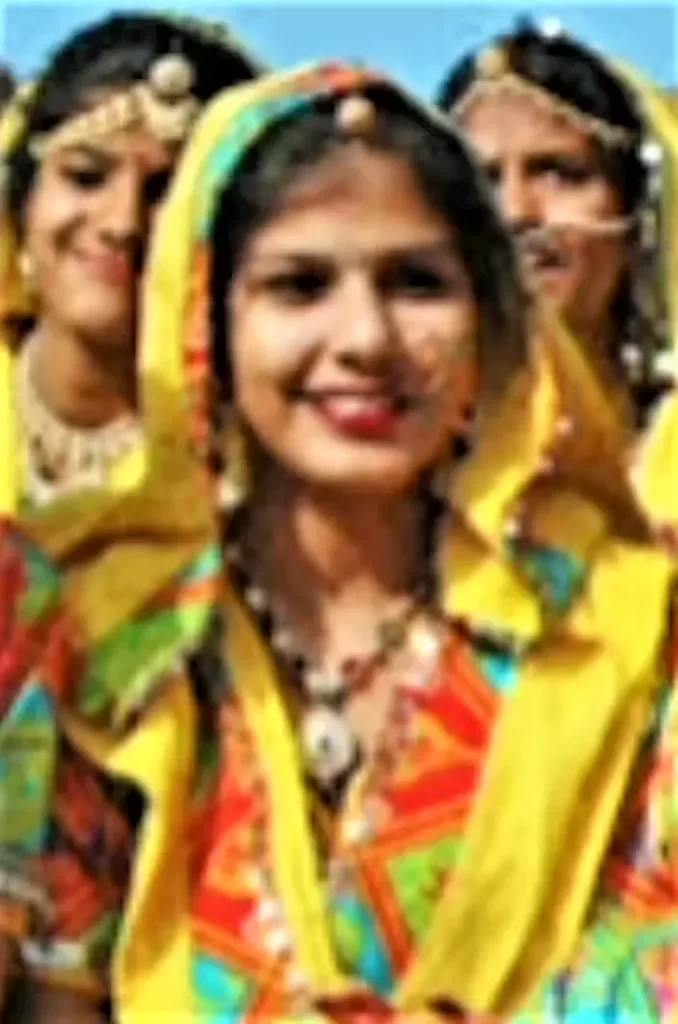
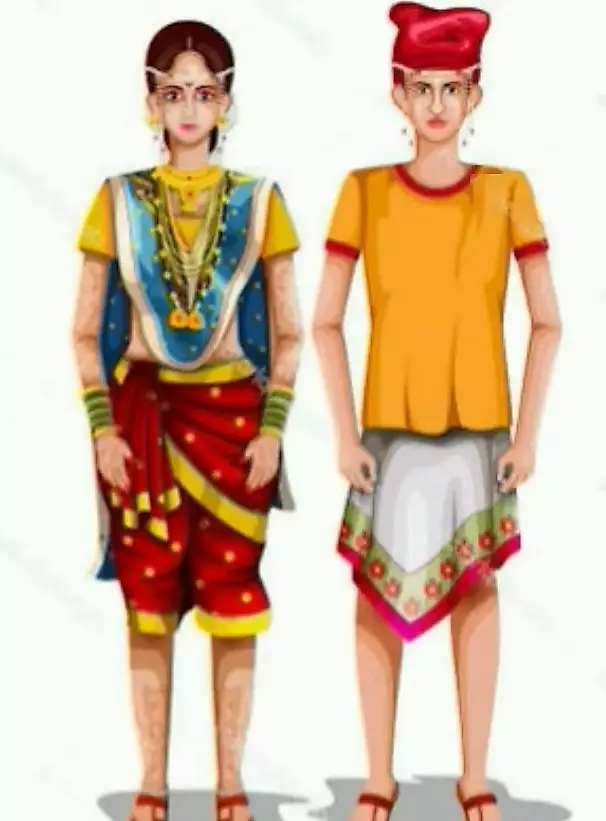
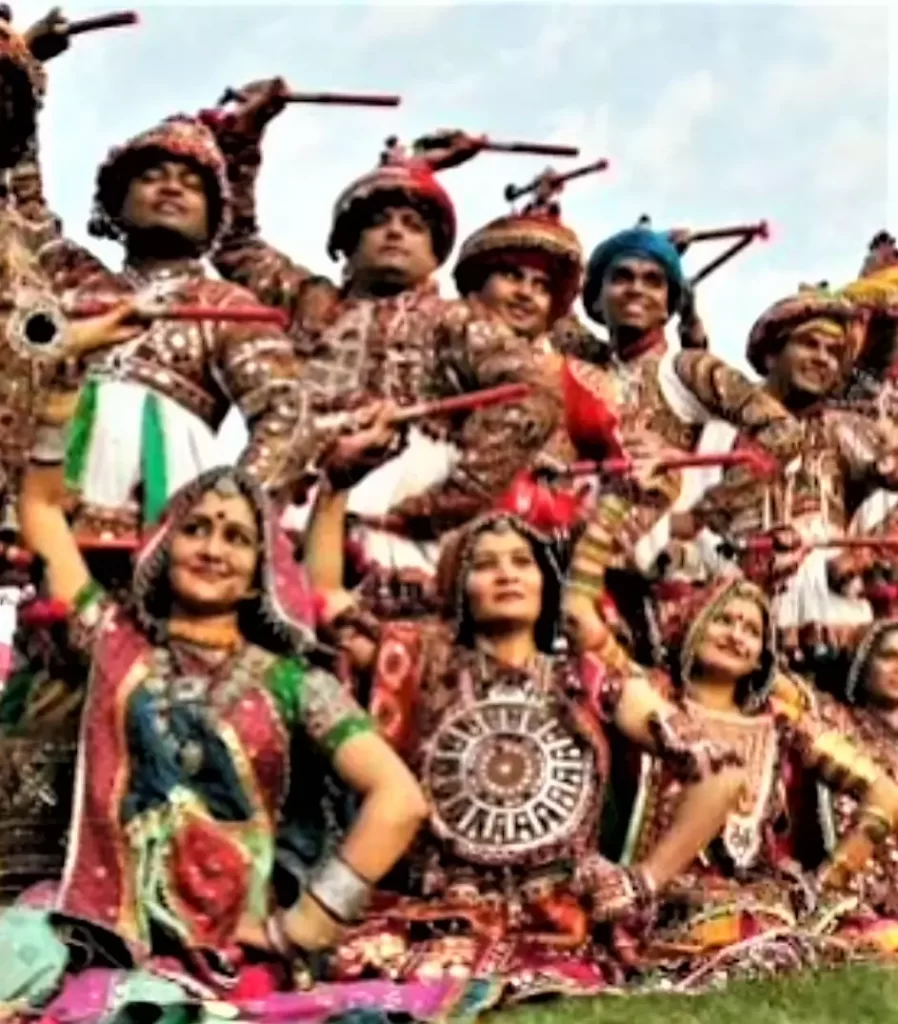
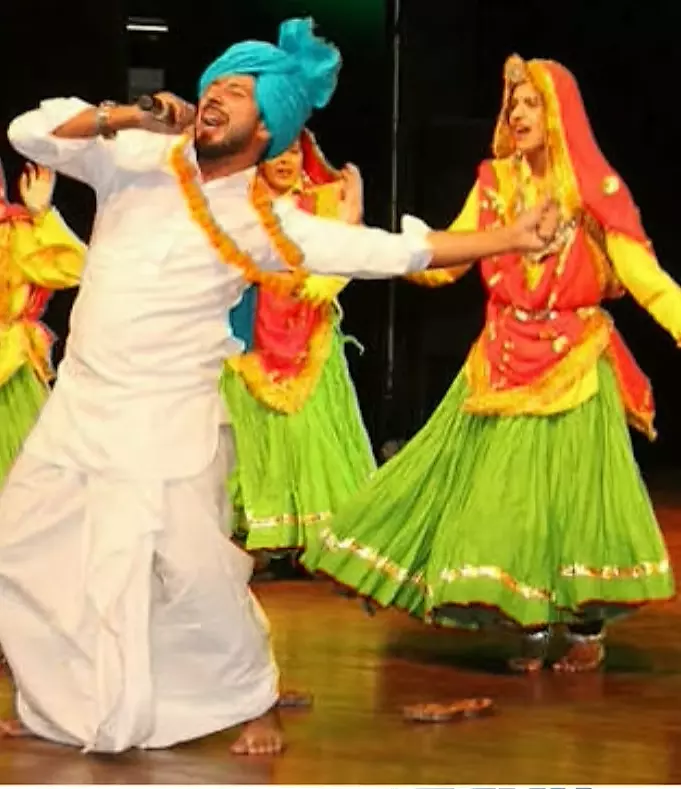
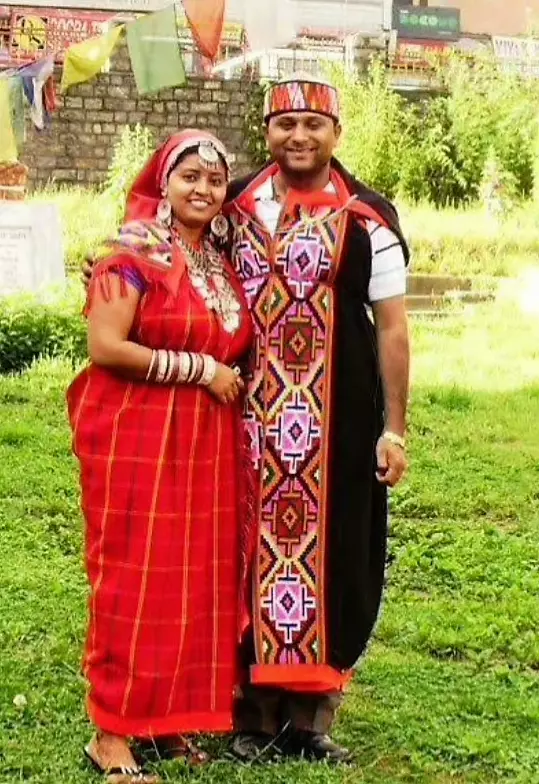
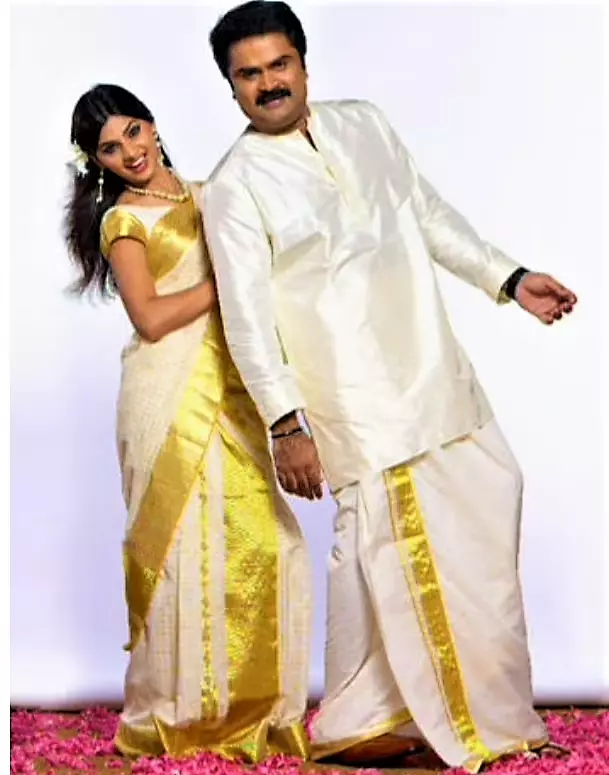
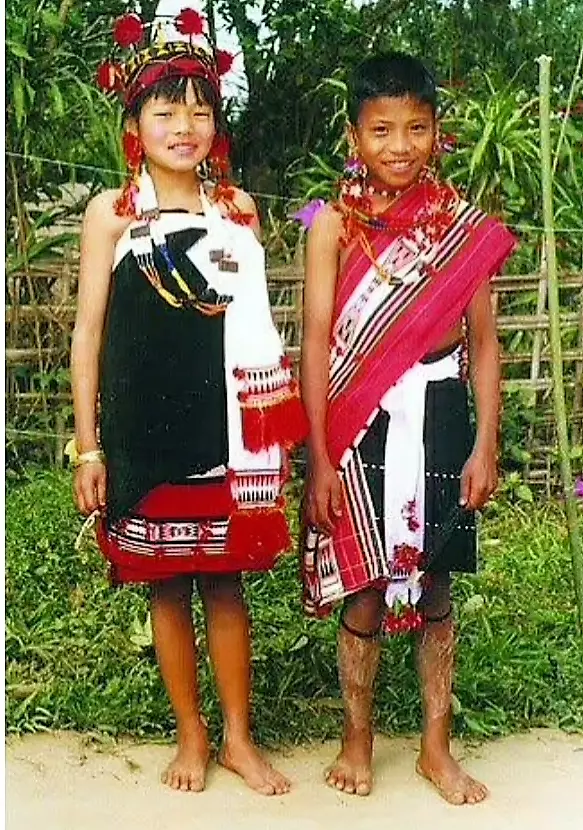
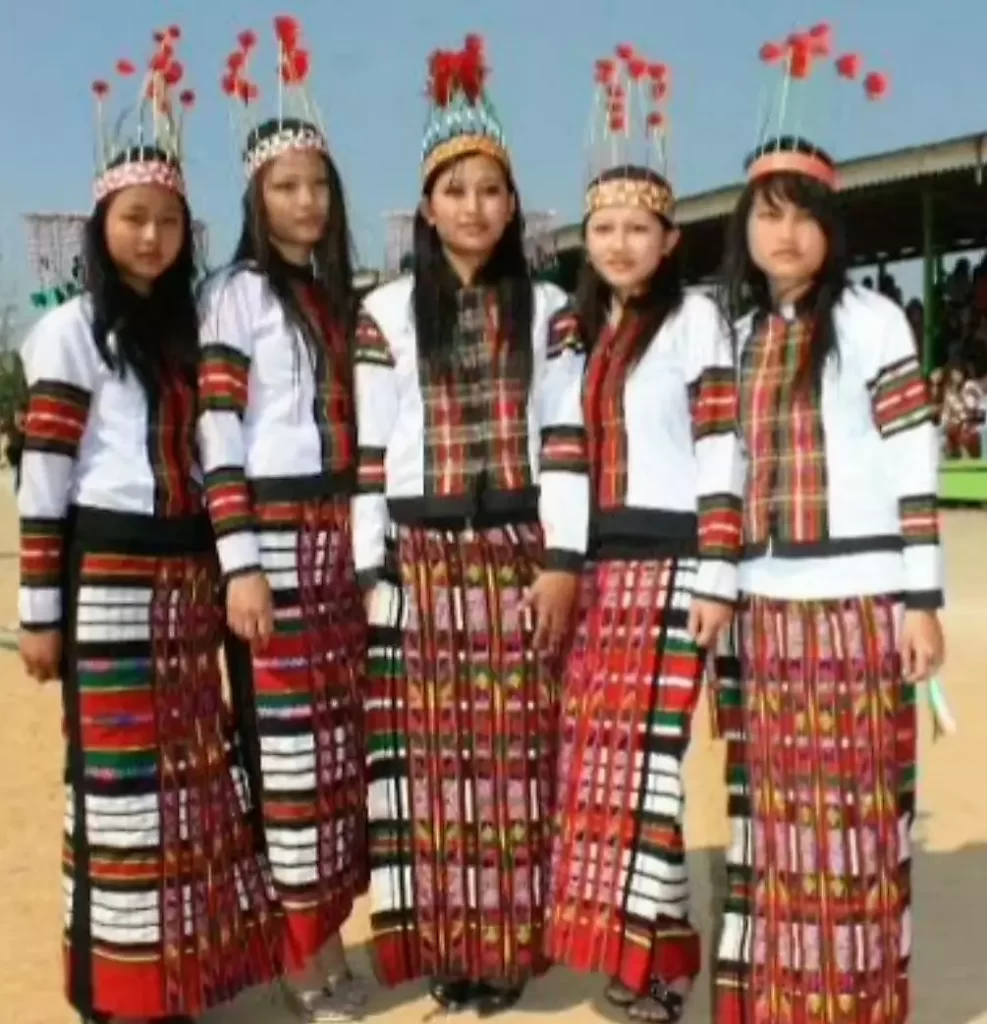
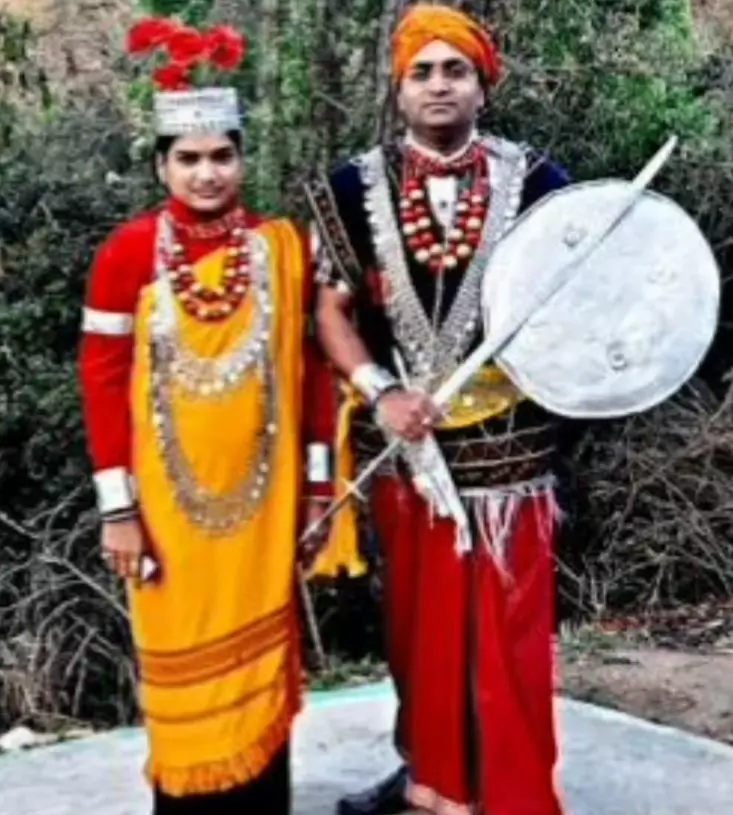
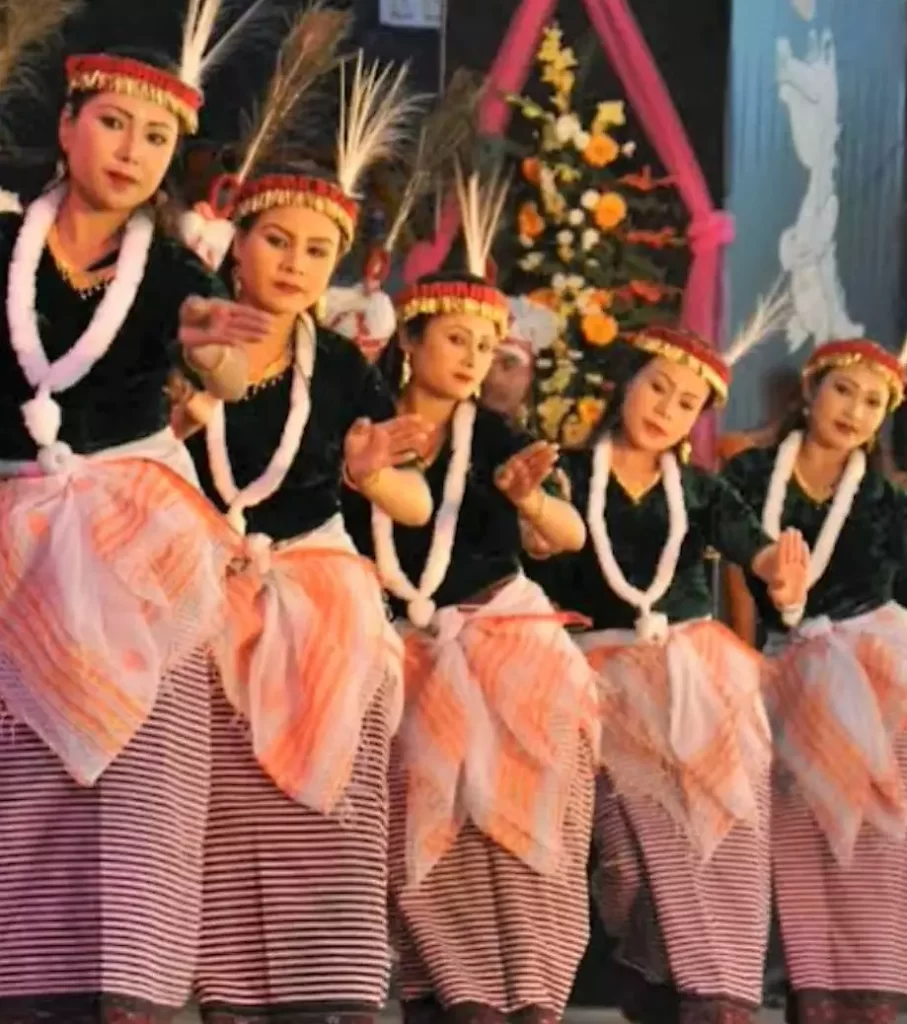
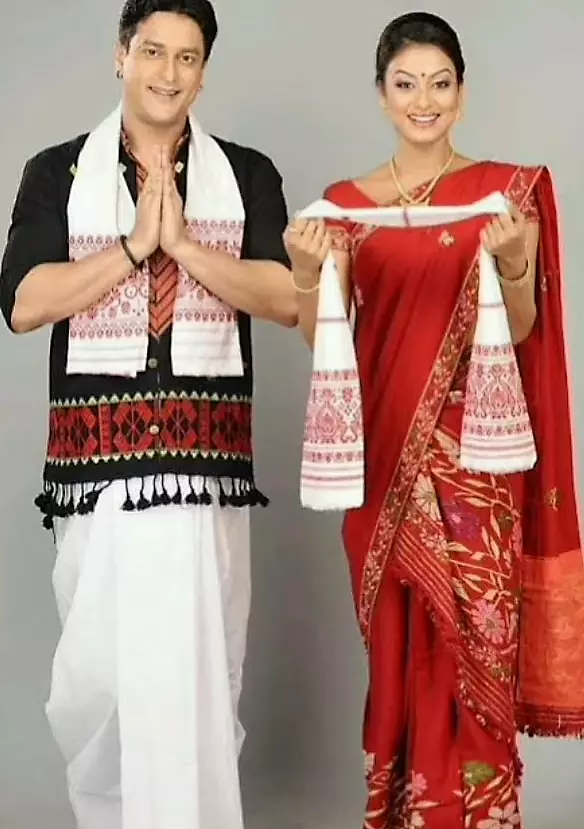
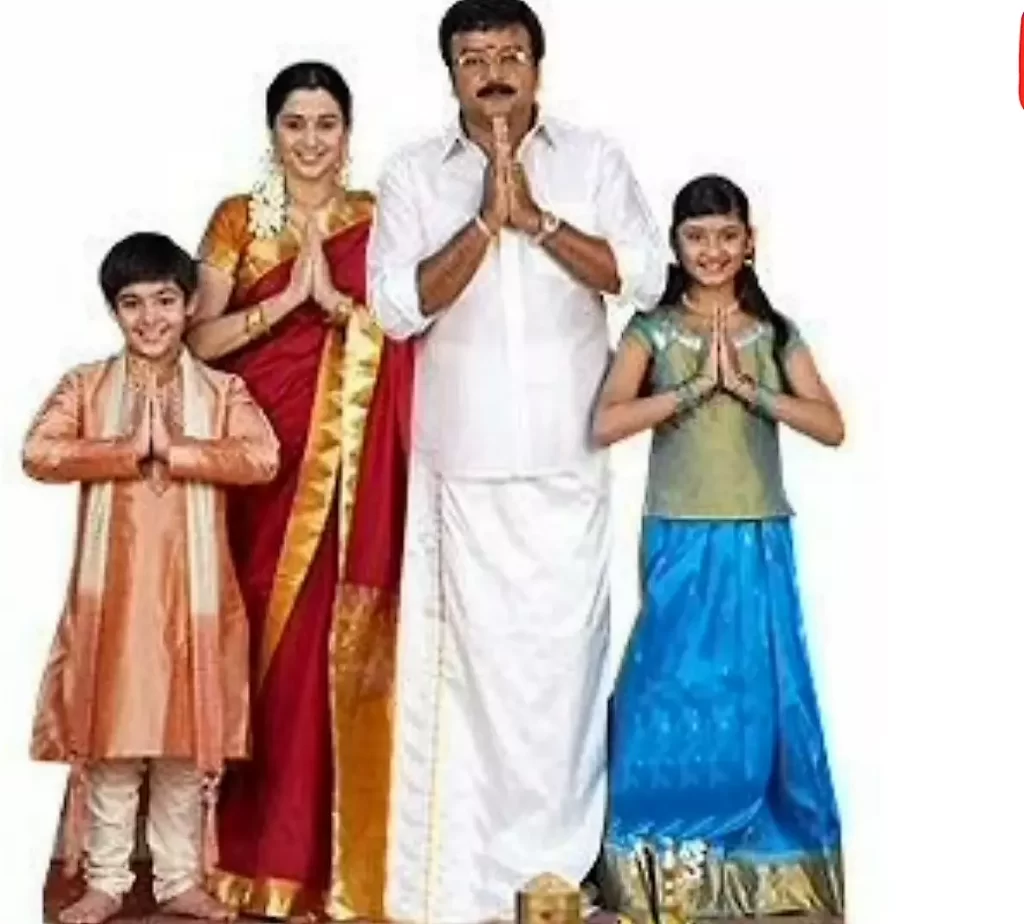
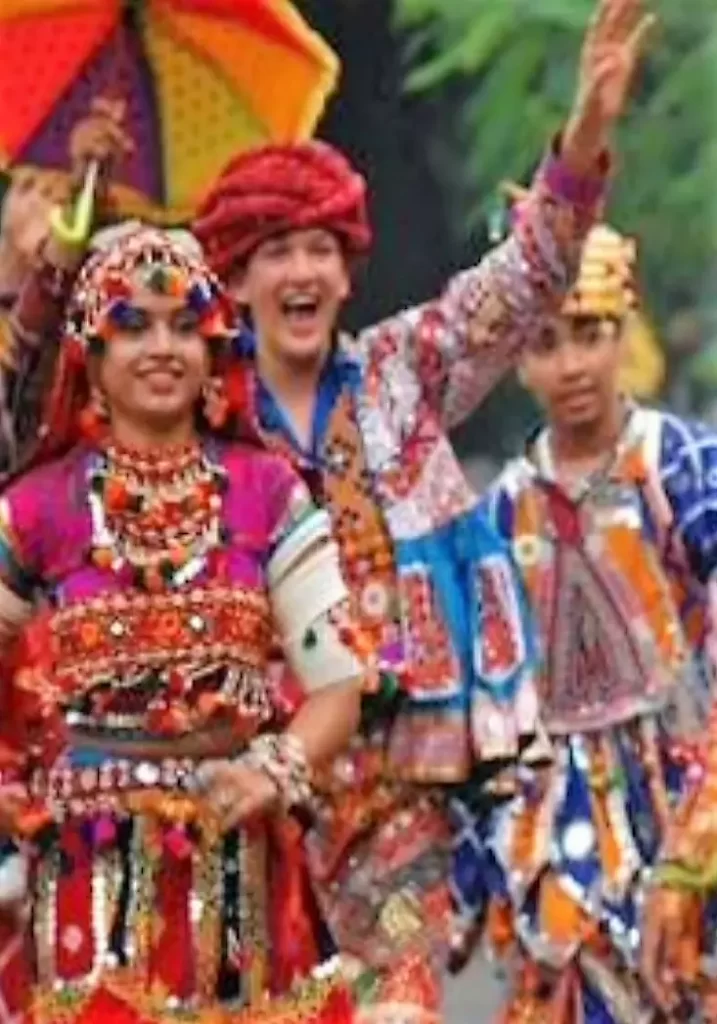
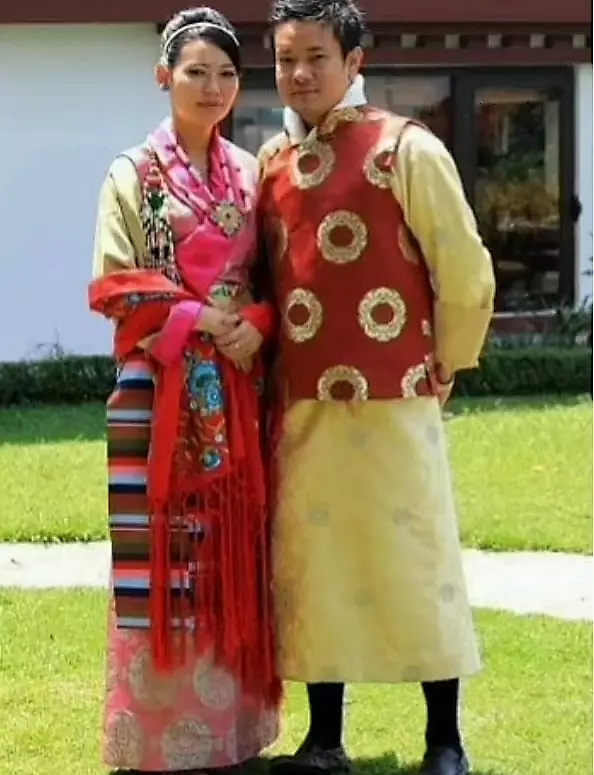
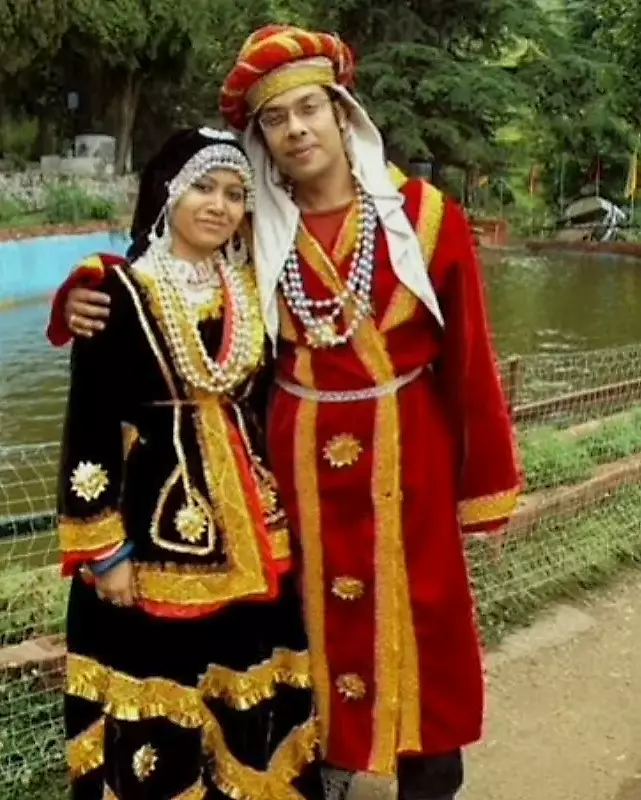
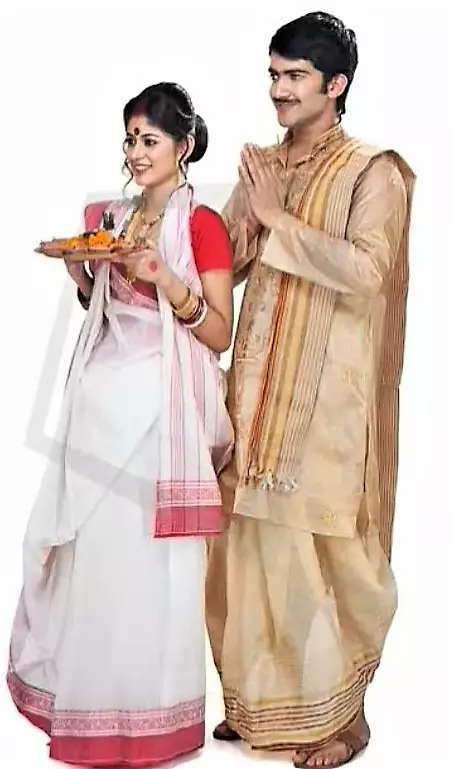
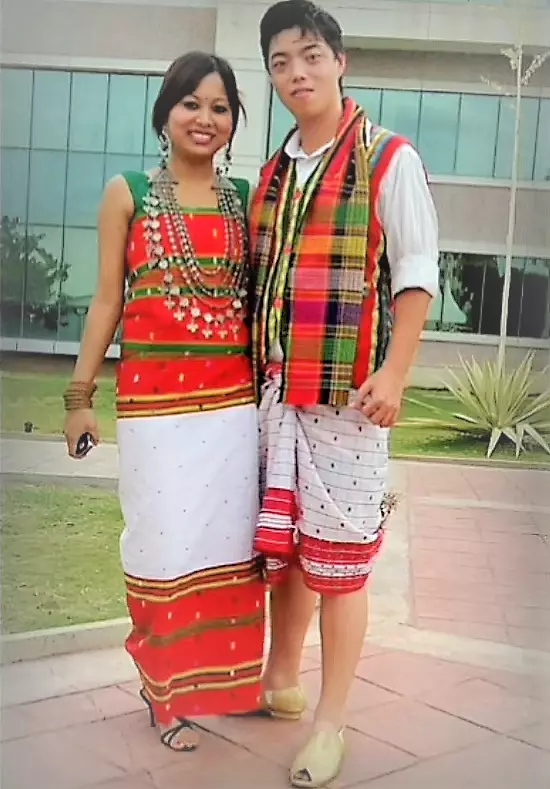
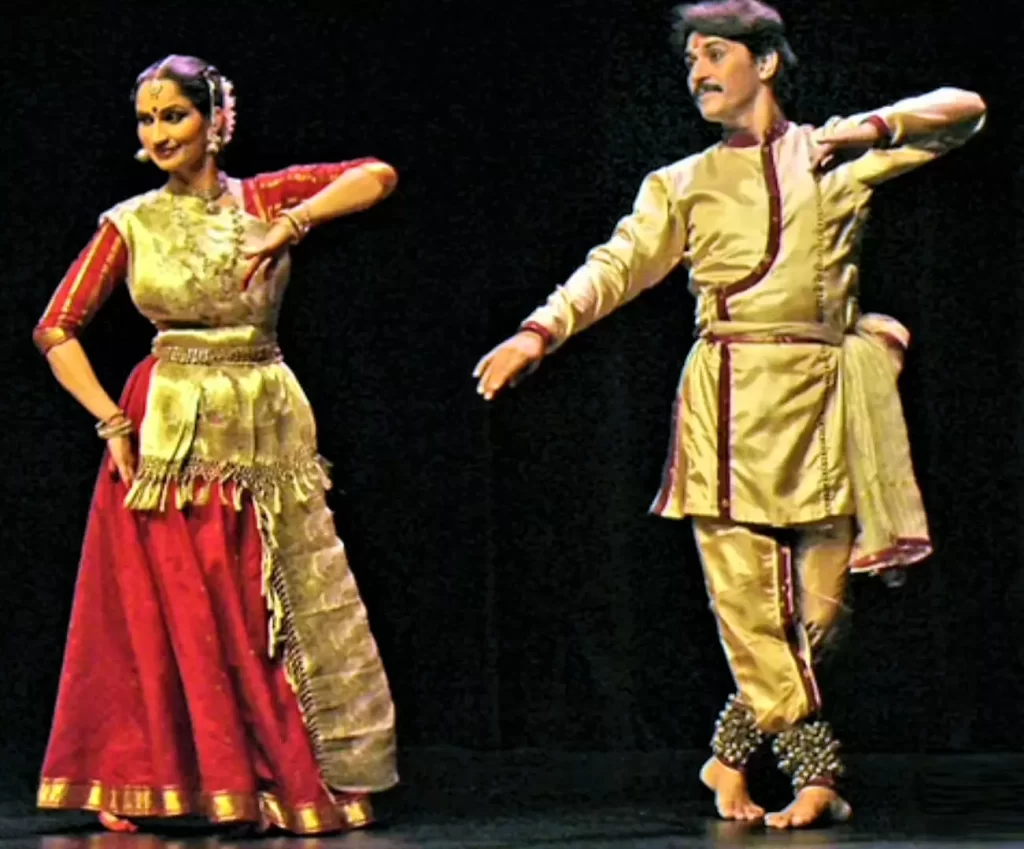
1. Andhra Pradesh
For women, it’s handloom silk sarees and For men, the traditional dress is a full-length dhoti with kurtas.
Andhra Pradesh is a south Indian state, that is particularly famous for Kalamkari Sarees with mythologic figures printed. You can see diverse clothing with religions. Andhra Pradesh beats has a variety of fabrics which is a precious legacy to them.
The brides wear silk, rich texture sarees which are red and decorated with gold plating. Bridegrooms wear Kurta and full-length dhoti. Younger women here wear two-piece traditional sarees called Langa Voni. And men casually wear dhoti or lungi. Muslim men use pajamas instead of dhoti.
2. Arunachal Pradesh
For ladies, the traditional dress is Chemise with a long jacket and For gentlemen, it’s a knee-length silk garment with a Gurdam which is a skull cap covered with yak hair.
Arunachal Pradesh is a North-Eastern Indian state, that is particularly famous for tribal motifs adorned with beautiful colored traditional dresses.
Women wear full sleeves top-jacket over a sleeveless chemise dress that is kept in place with a belt tied over it and worn with a Mushaik which is a waistcloth. The lungis worn by men are usually green interwoven with red, yellow, and white stripes which they pair with a sleeveless silk shirt. Their dress is decorated by an important traditional wear skull cap covered with yak hair which is called Gurdam.
3. Assam
The traditional dress of women in Assam is Mekhla-Sador and The traditional dress of men in Assam is Dhoti–Kurta.
Assam is a North Indian state encircled by seven North-Eastern States and has beautiful traditional costumes. Assamese exquisite costume Mekhla Sador looks ethereally beautiful on them and they feel delighted about their traditional attire. This traditional attire is made from the august Muga Silk of Assam.
Assamese women also wear Dokhora which looks like a mixture of saree and salwar suits. Assamese men keep their look simple with a dhoti and kurta with a hand-loomed scarf called Gamusa but they look sharp. In Thai Phake tribes, women wear Chiarchin which is a corset or band. Menfolks wear Suria and Kameez with Seleng which is a Chadar.
4. Bihar
Bihar is an Eastern Indian state where women’s sarees are mainly made from Tussar silks.
Women here wear sarees with straight Anchal style. Men already adopted western culture but not women. Traditional clothes are only worn on occasions for men, like in marriage.
5. Chhattisgarh
Chhattisgarh is a Central-Eastern Indian state which is rich in culture and you’ll see different ethnic costumes here. Chattisgarh societies wear bright color fabrics, with pieces of jewelry.
Women wear Kuchhora or Kachmora-styled saree which is known as Lugda, with a blouse known as Polka. Men wear headgear known as a Turban which is made of cotton, silk, or linen, and a Batik decorated with molten wax.
6. Goa
Women wear Pano Bhaju and Men wear brightly colored shirts, half pants, and Bamboo Hats.
Goa is a Western Indian state where the beach is famous among tourists.
Nan Vari is a 9-yard saree adorned with precious stones, worn by Goa’s women on special occasions with beautiful pieces of jewelry and Pano Bhaju is worn with a Sarong underneath the blouse.
7. Gujarat
Females traditionally wear Chaniyo Choli and Males traditionally wear Chrono and Kediyu or Dhoti.
Gujarat is a Western Indian state full of cultures and colorful traditional attire. Women adorn themselves with shimmering glass embellishments. Even men’s outfit is very colorful and embellished with glass which is Kediyu.
Chaniyo Choli is a three-piece costume with a lehenga called Chaniyo, choli, worn with a Polku which is an Odhna.
8. Haryana
The traditional dress of Ladies is Daman or Kurti and Chunder and Gentlemen wear Dhoti with a white color Kurti and a Pagri with it.
Haryana is a Northern Indian state of colorful traditional attire.
Women wear colorful ankle-length Ghaghras which are called Daman with a Kurta. They cover their head with a cloth embroidered with bright laces called Chunder. For men, Pagri is a traditional headgear that is worn by old men. Jutis is traditional footwear for men. Men’s attire is just the opposite of women’s. Women’s attire is full of colors whereas men cover themselves with all white.
9. Himachal Pradesh
Females wear Salwars, Ghaghra and Males wear Long kurtas.
Himachal Pradesh is a Northern Indian state with a chilly climate, so the weather affects their attires. They usually wear woolen clothes like scarves, and shawls to keep them warm. Though Himachal men frieze Kurtas and identical Himachali caps to keep them warm.
Himachali women wear headscarves decked with golden periphery called Rahide. Pashmina shawls are famous for their enriching quality of keeping the body warm.
10. Jammu and Kashmir
Jammu – Kashmir is the Northeast and chilliest state of India which makes Kashmiri peoples wear warm clothes. The traditional attires of Jammu-Kashmir are full of charming dazzling colors.
Hindu ladies wear Pheran with narrow sleeves teamed with Taranga which is a headdress while Mohammedan ladies wear long and flare sleeve attire completed with Abaya which is a headdress too. Hindu Gentlemen wear Turbans with their attire whereas Mohameddan Gentlemen wear Pathani suits with skull caps.
11. Jharkhand
Jharkhand is an Eastern Indian state with tribal, nontribal peoples. Nontribal people’s attire is common like the attire in the modern age, though their traditional attire is the dhoti and kurta. Tribal peoples have their unique costumes.
On occasions, men and women adorned themselves with traditional clothes. Women wear elegant Tussar silk sarees and men have seen them in sherwanis. Tribal women wear Parthan on the upper body and Panchi on the lower part
12. Karnataka
Women here wear famous Kanjeevaram silk sarees and Men here wear Panche, casually lungi, and shirts.
Karnataka is a West Indian state, which is famous for Kanjeevaram and Kanchipuram silks all over India. Karnataka is known as the silk hub of India and a wide variety of silks comes from here.
Men in Karnataka wear traditional attire Dhoti known as Panche with Mysore Peta which is a headdress.
13. Kerala
The traditional dress of women is Mundum Neriyathum and The traditional dress of men is Mundu worn in the bottom portion from the waist.
Kerala is a South-West Indian state, which still maintains its traditional attires in this modern era. Kanchipuram silk sarees are also famous here. Women wear decorated Banarasi silk sarees.
Mundum Nariyathum is a saree consisting of two parts Neriyathu and Mundu. Neriyathu is the upper part type of scarf tucked into the blouse and Mundum is the lower part from the waist to downward up to the ankle. Mundu is also worn by men in Kerala but Ladies Mundu is more beautiful with embroidery works.
14. Madhya Pradesh
Women wear Lehenga Choli with Lugra which is an Orna and Men wear Dhoti with Bandi.
Madhya Pradesh is a Central Indian state with simple traditional attire. It is famous for Banhej or Bandhani saree.
But still, women here wear Lehenga-Choli. Bandi is a white or black colored jacket. Mirzai is also a kind of jacket worn by Madhya Pradesh Men. Specially Malwa and Bundelkhand men wear these Bandi and Mirzai.
15. Maharashtra
The traditional dress is Nauwadi Saadi for women and The Traditional dress is Dhotar and Pheta.
Maharastra is a West Indian state with various cultures and symbolic clothing.
Nauwadi Saadi bright color sarees are also called Lugda, which are worn up to the knee with cholis. This is an iconic attire for Marathi women. Marathi women don’t need petticoats because they wear saree in a dhoti style which looks so classic and beautiful. In Maharastra, traditional dresses are still famous even in Urban areas.
16. Manipur
Manipur is North-East Indian state that has colorful unique traditional dresses for women.
Innapani is a knitted shawl used as Dupatta, Sarong is a cloth wrapped around the chest and Phanek is a skirt worn by Manipuri women. Men wear jackets or Bundis on their upper body with a dhoti on the lower body with a Turban as a headgear which completes their traditional look. The Pagri they use is white color.
17. Meghalaya
Meghalayan Khasi females wear Dhara and Meghalayan males wear Jymphong. They have multiple traditional clothes for multiple tribes.
Manipur is an Eastern hilly Indian state full of multiple tribes and their diversity of clothes. As well as every tribe has its unique attire. The major tribes are Khasi, Jayanti, and Garo.
Khasi women wrapped Dhara or Jainsem from top to bottom which involved multiple pieces of clothes. Khasi men wear Jymphong which has long sleeves coat secured by strings in front of the coat. Garo women wear a blouse with a wrapper on top with a wrapped cloth called Dakmanda at the bottom. Garo men drape Gantap which is worn above the knee with a Genji. They also wear Kotip Nokma which is a silk turban – headgear. Jayanti women wrapped around their waist with an ankle-length sarong known as Thoh Khyrwang, with a velvet blouse, and cover their heads with Kyrshah. Khasi and Jayanti men adorned themselves with Kynjri Ksiar which is a gold pendant.
18. Mizoram
Mizo women wear Puran, Puanchei, and Mizo men drape with a cloth.
Mizoram is a Northeastern Indian state and also has a very glossy colorful, beautiful traditional costume that is attractive enough just like other northeastern states.
Mizo women love themselves in Puran or Puan and very popular dress in Mizoram. The sparkling appearance and the outstanding designs of the costume are exquisite. Puanchei is for girls worn with a blouse called Kawrchei on occasions like Pawl Kut and Chapchar Kut. As you can see varieties in women’s clothing men have very simple clothing. They drape a long cloth and for chilly weather, they drape another cloth like a coat. They love to wear red and white colors of cloth. For summer they add a Turban to prevent themselves from the hit of the sun.
19. Nagaland
Traditional dresses for Women are Vatchi, Skirts, and Shawls and Traditional dresses for Men are Kilt and Wrapper.
Nagaland also is a Northeastern Indian state that encompasses a wide variety of clothes. If you go to Nagaland you may see a wide variety of Shawl. Though they use black kilt for regular purposes.
There are mixtures of tribes in Nagaland. Agami Women wear Vatchi dress in Nagaland. Vatchi is a sleeveless top, worn with a Neikhro. Neikhoro is a petticoat, and on top of it, they wear a skirt called Pfemhou. There are Ao and Zemei tribes with different beautiful attires. Men in Nagaland wear a Ratapfe which is a famous shawl and attraction for tourists. There are Aomelep, Tsungkotepsu, and a wide range of stunning shawls worn by Nagaland gentlemen.
20. Odisha
Odisha is an Eastern Indian state where elders strictly follow their traditional clothes. Like most of the states in India, ladies adorn themselves in saree and gentlemen prefer Dhoti and Kurta.
Katak sarees and Sambalpuri sarees are famous among Odissi females especially worn at festivals Dhardiya is one kind of border seen in their sarees and men wear Gamucha with dhoti during festivals. They wear dhoti in a unique style with pleats in the back called Malkonchas and front called Kunchi.
21. Punjab
For women, the traditional dress is the Salwar suit and For men, the traditional dress is Kurta and Mutsari Pajamas.
Punjab is a Northwestern Indian state with very delightful colors and friendly humor and Punjabi attires also match their delights and craze.
Women nowadays wear Ghaghras instead of traditional salwar suits or rather I’ll say Ghaghra is now their traditional suit. Patiala style churidars are famous in Punjab as ladieswear. Punjabi men adorn themselves in equally colorful kurtas and Tehmats replaced the pajamas.
22. Rajasthan
Rajasthan is a Northwestern Indian state that has novel attires. Men and women adorned themselves in splendidly designed clothes to flaunt the ambiance. They also wear appealing pieces of jewelry from head to toe like Pagar, special footwear, etc.
The Ghaghra of Rajasthan women are colorful, made of cotton, and can be found in diverse styles designed with Laharia, and Chunari prints. They tuck one side of the Odhni inside of the Ghaghra and the other side goes above through head. The impressive thing is Mohammedans and Hindus wear the same clothing. Men wear turbans in several shades which symbolizes the uniqueness of the region and caste they belong from like rich men wear multicolor turbans and there are more than 1000 types.
23. Sikkim
Sikkim ladies wear Dumdyam or Nyamrek and Sikkim gentlemen wear Kho and trousers.
Sikkim is a Northeastern Indian state surrounded by West Bengal, China, Bhutan, and Nepal and just like other Northern states, Sikkim has beautiful traditional dresses.
Dumdyam is an ankle-length cloth worn like a dress above a beautiful blouse called Nyamrek. Men wear headgear with Kho known as Shambo. They tie Kho with a cotton or silk belt and pair it with trousers.
24. Tamil Nadu
Tamil Nadu is a South Indian state and just like most of the states of India, its traditional wear for women is the saree but the way it is worn is probably most beautiful and unique.
Kanchipuram, Patola Silk, Organza, cotton, and chiffon sarees are famous here. Pavada is one of a kind saree worn by girls. Men drape a cloth above lungi around the shoulder that they called Angavastra in their language, even though their attire is very common still they show it off in their unique way.
25. Telangana
The traditional dress of women in Telangana is cotton sarees, Langa Voni and The traditional dress of men in Telangana is Pancha.
Telangana is a South Indian state famous for its cotton production. Women are seen here in different types of sarees. Mohammedan and Christian women also wear saree here.
Pchampally and Gadwal sarees are famous in Telangana. Their sarees are beautifully designed and brocaded for festivals. Pancha is a dhoti worn by men.
26. Tripura
Women in Tripura wear Rignai and Men in Tripura wear Kubai and Rikutu on their upper bodies.
Tripura is a North Indian state that has unique designs for its traditional wear. Various tribes live in Tripura like Khakloo, Halam, and Kukichin.
Khakloo tribes drape themselves from waist to knee with a large piece of cloth known as Rignai worn with Risa. Risa and Rignai have embroidery works on them and look very beautiful. Men adorn themselves in Rituku which is a type of gamcha worn with a shirt known as Kubai.
27. Uttar Pradesh
Women wear Saree and Men wear Kurta Pajama.
Uttar Pradesh is a North-Central Indian state that has different traditional wear but is almost the same as most of the Indian states.
Women adorned themselves with gold jewelry and the Mangal sutra and toe ring are for married women. Men wear Pagri with Kurta-Pajama during festivals.
28. Uttarakhand
The traditional dress of females is Ghaghra, Dhoti, Kurta, and Males wear Churidar Pajama with a Garhwal.
Uttarakhand is a North Indian state full of beautiful stunning tourist places and also beautiful traditional costumes.
Kumaoni and Garwali women wear Ghaghra. Pichora and Rangwali Ghaghra are very beautifully designed with silver and gold tatting. Hansuli is a necklace worn by Uttrakhan females.
29. West Bengal
West Bengal is a West Indian state full of different cultures and festivals.
Bengali women still love to wear sarees, especially at festivals. The colors of sarees change according to the festivals from Red-White to colorful. Married women adorn themselves with Sankha and Pola. Dhoti is the traditional dress for Bengali Hindu men, but they like to wear pajamas with a kurta or Punjabi even on occasions.
These are the traditional wear of 29 States of India but are only worn on occasions. In daily life, vast people wear Western clothes, especially the young generation. Even though Indians embellish themselves in traditional wear on every occasion, married purpose in every state.
Also, even though Indian attires are very colorful and Indians adorn themselves in bright attires for almost every occasion it’s important to know when to wear particular colors and when not to wear certain colors that may create a negative impression
Here are some more alike topics you may want to read!
That's all for today! I hope you liked it (❁´◡`❁)

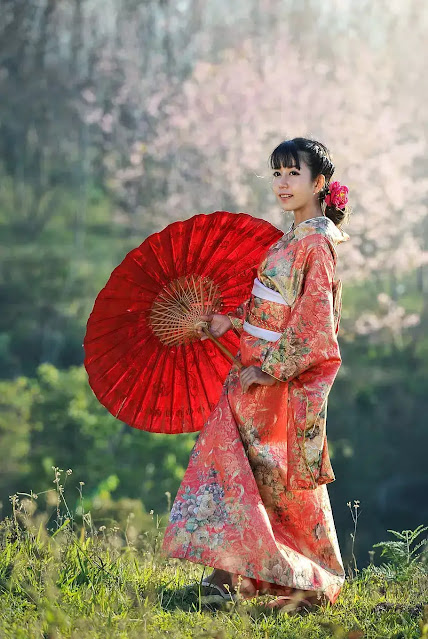
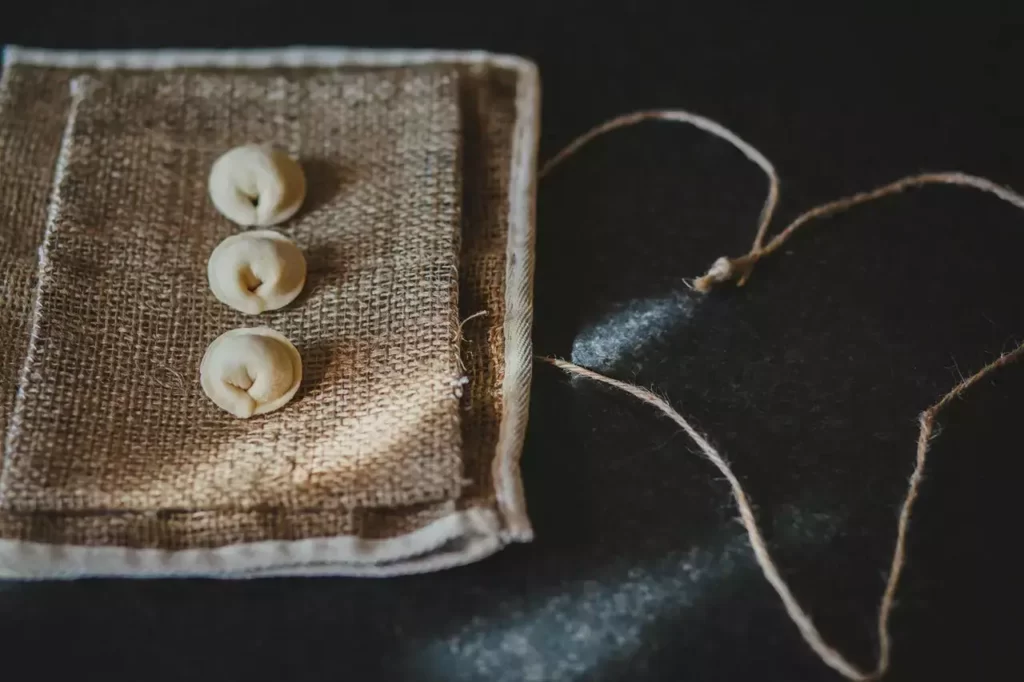
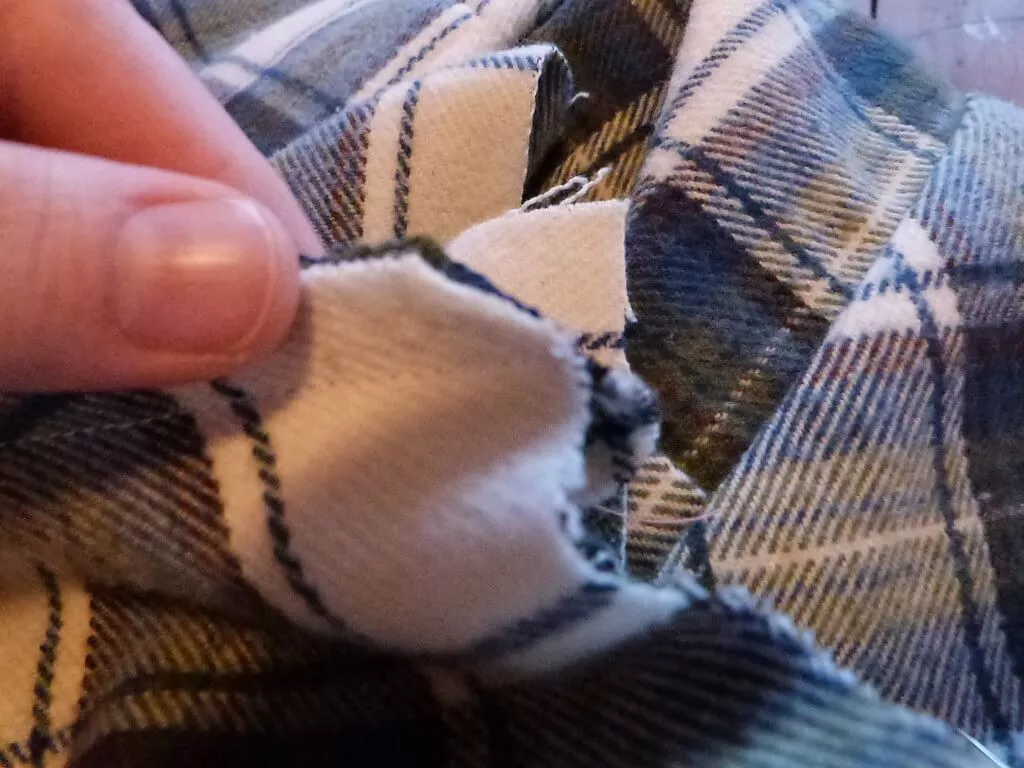
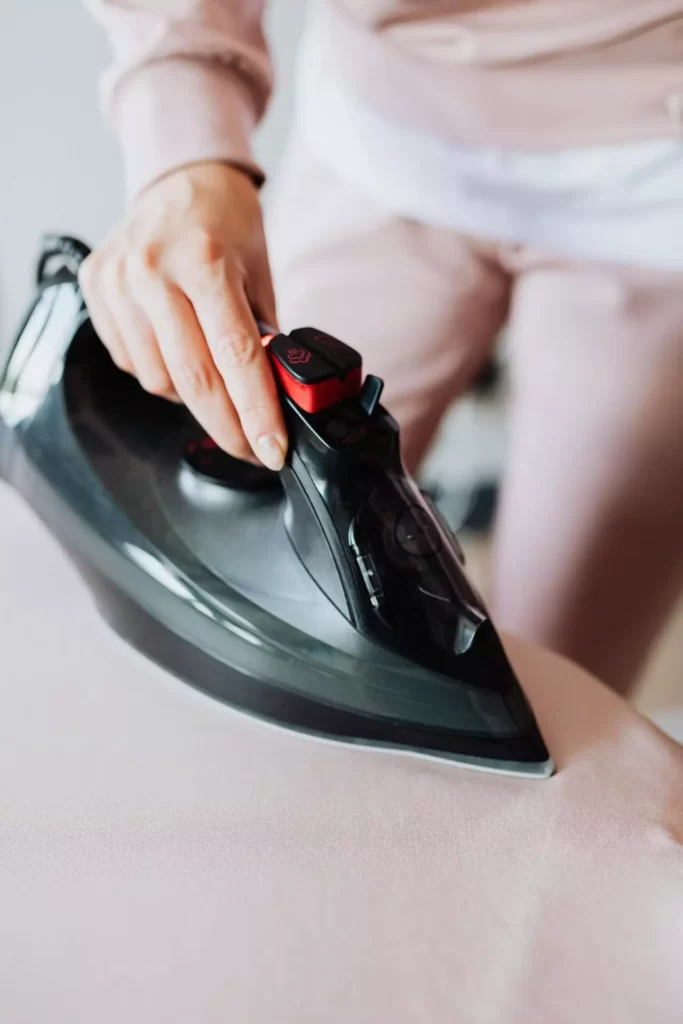
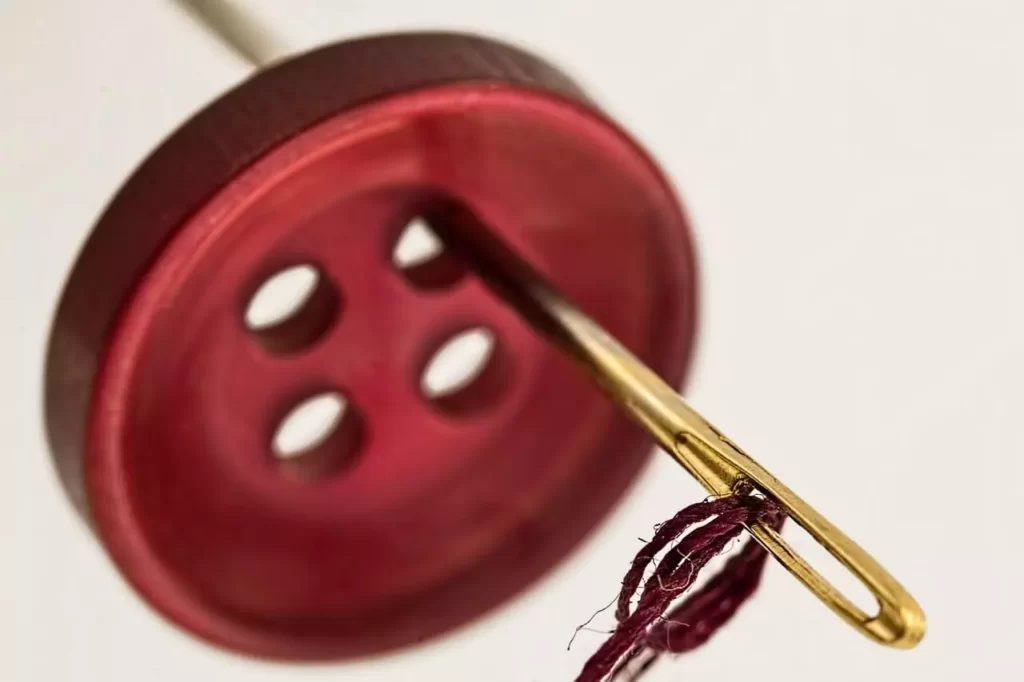
3 Comments. Leave new
Wao, those were gorgeous colorful clothes!
Yes!
Beautiful writing.